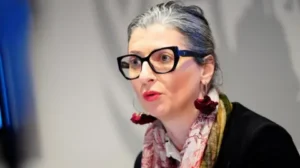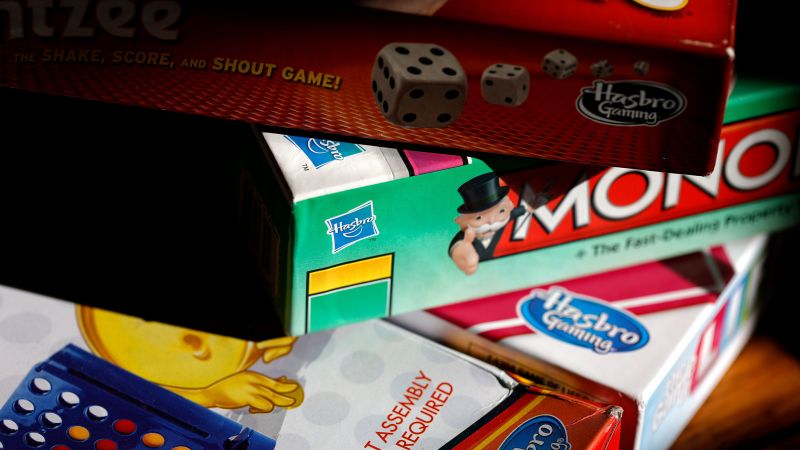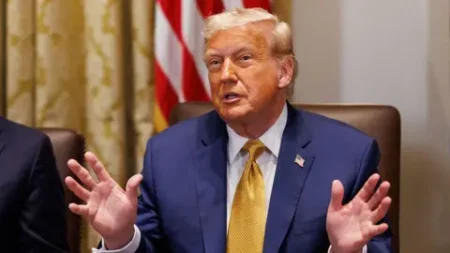In a recent interview with CNN’s Audie Cornish on the podcast “The Assignment,” Chris Cocks, CEO of Hasbro, discussed the potential impact of rising tariffs on toy prices in the United States. He indicated that an increase in prices is likely later this year, particularly if the ongoing minimum tariffs—30% on products imported from China and an expected 20% on goods from Vietnam—are implemented as anticipated. These two countries represent the primary sources of Hasbro’s material and product supply chain.
Cocks addressed the situation by asserting that while the establishment of these tariffs is significant, it is not unexpected. The company, which has been in operation since 1923 and is known for its iconic toys and games such as Play-Doh, Transformers, Candy Land, and Dungeons & Dragons, must adapt to the changing economic landscape. He emphasized a philosophy of agility combined with a measured response to market dynamics, suggesting that Hasbro is prepared to navigate these challenges without overreacting.
Despite the tariff pressures, Hasbro has not yet raised its prices; however, Cocks anticipated that any price increases would likely emerge in a window from August through October. This estimation is based on the production timelines required for toys, which typically take three to five months to reach store shelves after orders are placed by retailers. He also highlighted that approximately half of Hasbro’s products are manufactured within the United States, while the other half are produced internationally. This balance is shifting, as Hasbro has been proactively relocating more production facilities to countries like Vietnam, Turkey, and India, thus reducing its dependence on Chinese manufacturing.
Former President Donald Trump had previously advocated for American companies to produce their goods in the United States to circumvent tariffs. Cocks stated that this suggestion is indeed feasible for Hasbro, referencing the successful domestic production of their popular card game, “Magic: The Gathering,” which is now produced in North Carolina and Texas. Furthermore, the CEO hinted at the possibility of increasing local manufacturing for products such as Play-Doh, which is made from agricultural ingredients and may be more suitable for domestic production.
Nevertheless, Cocks acknowledged the complexities of shifting manufacturing to the U.S. labor costs pose a significant challenge, comprising the bulk of production expenses. Unlike many other sectors, toy manufacturing often requires intricate detail work that is difficult to automate, complicating the process of bringing more jobs back to the United States. He noted that in cases where a toy is produced domestically, labor costs could account for upwards of 80 to 90 percent of the overall expense, translating to potential price hikes—where a doll that currently retails for $10 could need to be sold for as much as $18 to preserve profit margins.
Amid discussions of tariffs, Cocks took a stance against assertions made by some officials, like Commerce Secretary Howard Lutnick, which imply that foreign nations bear the burden of tariff costs. He clarified that it ultimately falls on companies to absorb these costs, as foreign suppliers typically operate on exceptionally slim profit margins of merely 2 to 3%. As such, Hasbro is poised to incur increased costs when importing its products.
Navigating through these economic challenges, Cocks highlighted that Hasbro is better equipped than many competitors in the toy industry to renew its strength in the face of tariff pressures. The resilient performance of Hasbro’s games division, which is less reliant on overseas manufacturing, bolsters the company’s position. Additionally, he pointed to the significant growth within Hasbro’s licensing segment, which has seen a remarkable 60% increase over the past three years. This growth not only provides an essential source of revenue but also contributes “pure profit,” offering a valuable buffer as the company strategizes to handle rising costs effectively.
In conclusion, Cocks expressed solidarity for his peers in the toy industry facing mounting challenges, indicating that while Hasbro is navigating its own complexities, the broader industry landscape poses significant obstacles that warrant collective concern.











